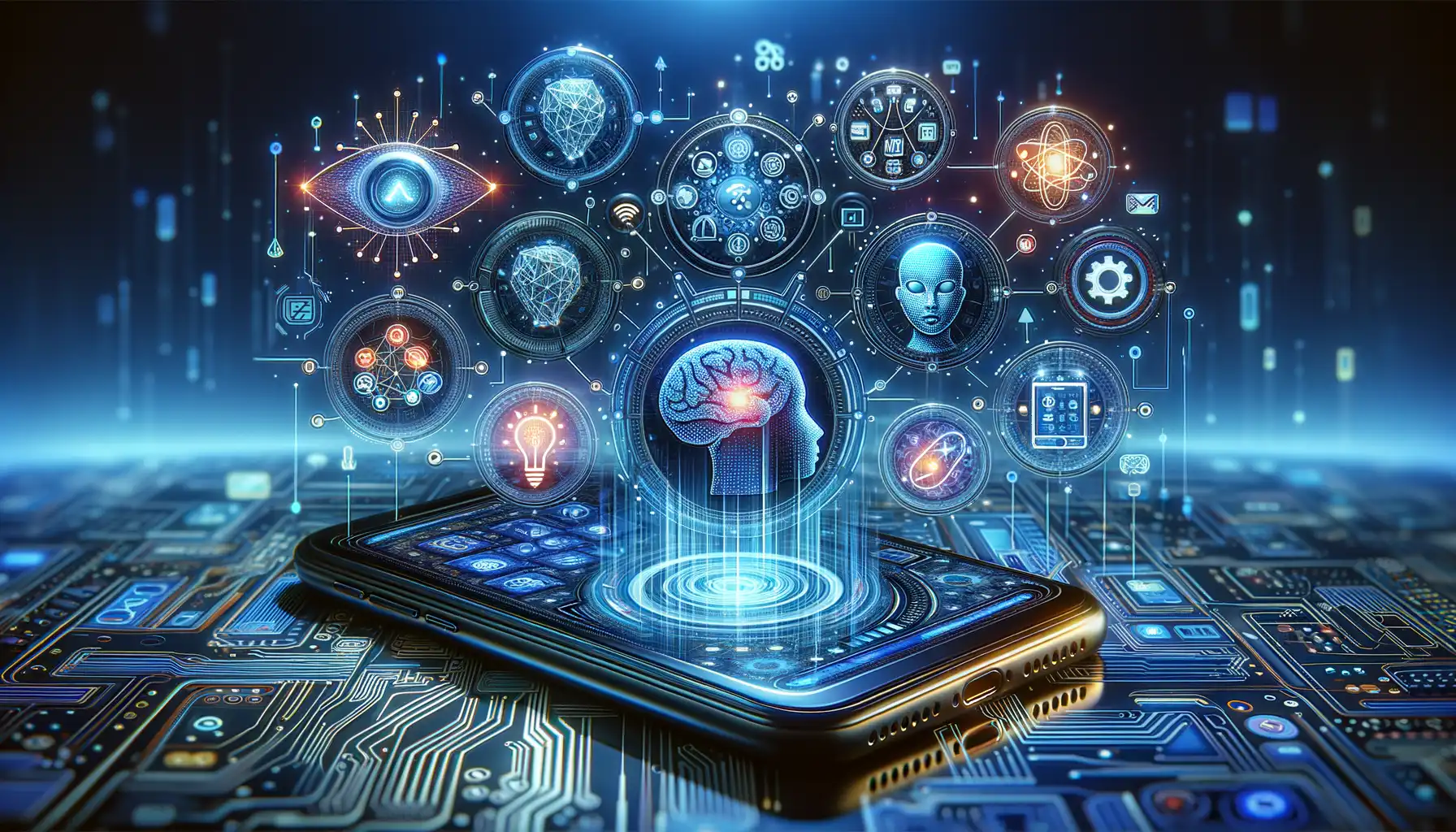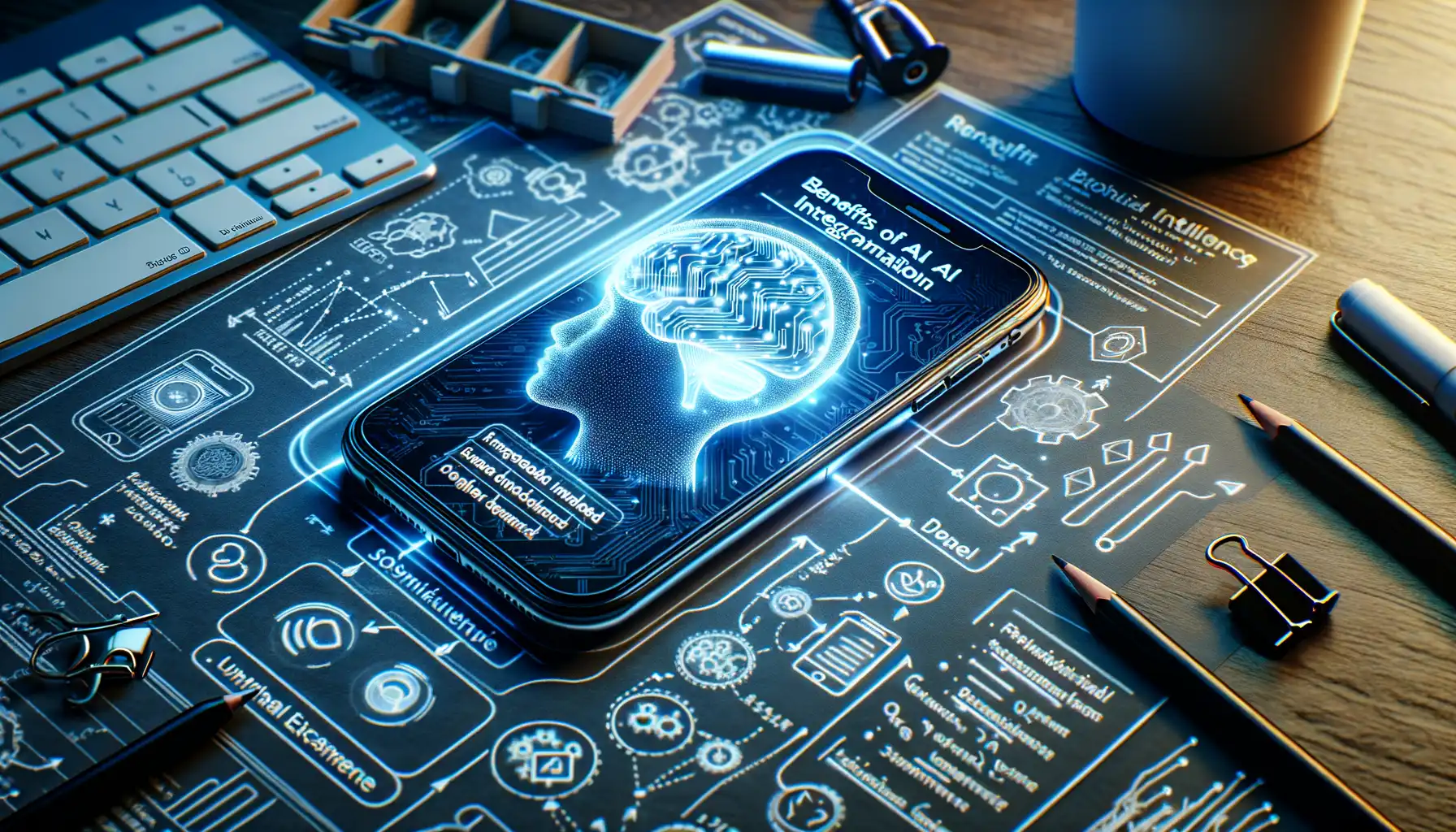Introduction to AI in Mobile App Development
Why AI Feels Right at Home in Mobile Apps
Imagine unlocking your phone and being greeted by an app that “knows” you—like a barista who remembers your coffee order or a tailor crafting a suit just for you. That’s the magic of AI in mobile apps. It’s not some futuristic buzzword anymore; it’s here, alive, turning ordinary apps into extraordinary tools.
Think about it: AI doesn’t just react, it predicts. Your weather app? It’s not just showing rain—it’s suggesting when to grab your umbrella based on your commute schedule. Your fitness tracker? It’s not merely counting steps—it’s tailoring exercise plans based on your progress. These little touches make every user experience personal, seamless, and dare we say, borderline telepathic.
- Speech recognition now understands dialects and accents like a charming polyglot.
- Machine learning curates playlists that groove perfectly to your mood swings.
- Natural language processing makes chatbots sound less robotic and more like your best friend texting you back.
Mobile apps with AI don’t just serve users—they connect with them, anticipate them, evolve with them. It’s not tech running the show; it’s tech dancing in tune with human needs. How incredible is that?
Key AI Technologies Transforming Mobile Apps

Game-Changing AI Features Taking Apps to the Next Level
The world of mobile apps is no longer just about swipes and taps—it’s about experiences that feel as if your phone truly “gets you.” That’s where cutting-edge AI technologies step in, transforming ordinary apps into intuitive, almost magical tools.
Take Natural Language Processing (NLP), for example. Ever noticed how virtual assistants like Siri or Alexa seem to understand not just what you say, but how you say it? NLP enables this. Apps now “listen” and respond in ways that feel delightfully human—be it translating languages on the go or crafting eerily accurate predictive text.
Computer Vision is another innovation turning heads… quite literally. This tech allows apps to “see” the world through your phone’s camera. Think face filters that fit like a glove or e-commerce apps identifying products directly from your vacation photos. Suddenly, snapping a picture becomes your gateway to discovering and shopping.
- Recommendation Engines: Netflix predicting your next binge-worthy series.
- AI-Powered Customization: Fitness apps tailoring workouts just for you.
From smarter decisions to hyper-personalization, these AI technologies are rewiring how we connect with mobile apps. It’s like the tech is whispering, *“Don’t worry, I’ve got you.”*
Benefits of AI Integration in App Development

Why AI Makes Your Apps Smarter, Faster, and More User-Friendly
Imagine having a personal genie inside your app, one that predicts what your users want before they even ask. That’s the magic of integrating AI in mobile app development. It doesn’t just streamline functionality; it transforms apps into intuitive, engaging digital companions.
First off, think about personalization. No more “one-size-fits-all” experiences. With AI, your app can analyze mountains of user data at lightning speed, delivering tailored content like Spotify recommending that perfect playlist or Netflix knowing your next binge-worthy obsession. It’s like giving your users a VIP pass to exclusivity!
But wait, it gets better—automation. Tasks that used to take hours can now happen in milliseconds. Whether it’s chatbots answering user queries at 3 a.m. or predictive text making typing effortless, AI saves users time while leaving them impressed by your app’s intelligence.
- Error reduction: AI monitors patterns to fix bugs faster than ever.
- Scalability: From startups to enterprises, AI ensures apps grow seamlessly with demand.
And here’s one more secret ingredient—engagement. AI-driven gamifications, AR overlays, or voice assistants keep users coming back, increasing retention like never before.
Use Cases of AI in Mobile Applications

Transforming Day-to-Day Experiences with AI
AI in mobile apps isn’t just a tech buzzword—it’s the secret sauce behind the apps you can’t live without. Picture this: you open your favorite fitness app, and it doesn’t just track your steps; it learns your routines, nudges you when you’re slacking, and customizes meal plans just for you. That’s AI weaving its magic.
From elevating your streaming experience by suggesting the *perfect* Friday night movie to enabling real-time language translation for seamless travel adventures—AI has seriously leveled up our everyday digital interactions. Here are some innovative ways AI is changing how we use apps:
- Personalized Shopping: Think curated outfit suggestions in e-commerce apps, like having your personal stylist in your pocket.
- Virtual Health Assistants: AI-powered apps now monitor your wellness and even predict health concerns based on your habits.
- Smart Home Integration: Control lights, security, and heating while your app adapts to your preferences over time.
So next time an app feels like it “gets you,” remember—it’s not magic. It’s **AI**, reshaping how we connect with technology and the world around us.
Challenges and Future of AI in Mobile App Development

Hurdles Developers Face with AI in Apps
The journey to integrating AI into mobile apps isn’t all smooth sailing. While it feels like we’re crafting magic wands for developers, these wands can come with tricky spells! One major headache? Data. Feeding an AI the right data is like finding a needle in a haystack—good luck training your chatbot if your dataset speaks 10 languages but your app users only speak one.
And let’s not ignore computation cost. Ever tried running a marathon in flip-flops? That’s how some devices feel when they manage AI-powered features. Advanced AI models demand high processing power, which leaves older smartphones feeling slow and drained.
Then there’s the ever-evolving issue of trust. AI decisions can sometimes feel like a black box—users ask, “Why did my app suggest THAT?” Developers must work overtime to make algorithms transparent, responsible, and bias-free.
- Ethical dilemmas: Balancing data privacy with delivering personalized experiences can be a moral tug-of-war.
- Regulations: Keeping up with different countries’ AI laws makes developers feel like they’re playing global hopscotch.
Where AI May Take Us Next
Despite these hurdles, the future feels electric. Imagine an app that not just *responds* to your needs but anticipates them—knowing exactly what you’ll want before you’ve even thought it through. With AI trends like edge computing, apps will soon handle heavy tasks on-device, reducing hiccups caused by bad internet signals.
Voice assistants could level up too, moving beyond “set my alarm” to genuinely holding conversations or solving complex queries. And let’s not forget health apps—they’re poised to play doctor, analyzing patterns in real-time to detect potential illnesses.
The horizon is vast, glowing with possibilities. What’s next? Only time—and AI—will tell.
